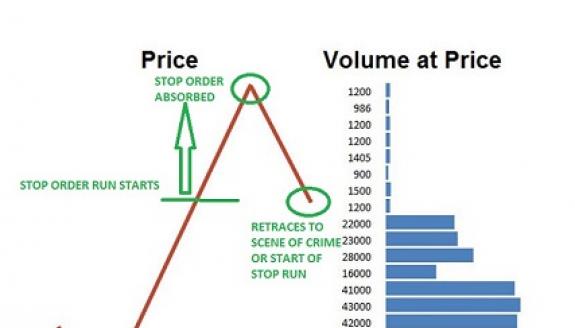
If you are a beginner forex trader, there are some things you should keep in mind. First and foremost, ensure that your broker is properly regulated. A well-regulated broker will ensure your safety and lower your risks. A demo account or cent account is a good way to start. Keep in mind that you don't need to deposit large amounts of money right away. Although bonuses and other offers may seem appealing, it is important to make a small deposit before you can receive any.
Logikfx's course forex trading 101 teaches you lessons
If you've been thinking about taking up online currency trading courses, then you've probably come across the name Logikfx. While it's a paid service, Logikfx is a comprehensive course that focuses on the basics. The videos focus on understanding through guided annotations and a quiz maker application. The fun environment allows you to gain a wealth information without having to listen to boring lectures.

Leverage
Leverage is often referred to as a double-edged sword by professional traders. While it can be extremely beneficial when you're right, it can also burn you faster. Learn how leverage works before you invest your money. Leverage can be tricky, so learn how to properly use it before you begin trading. Then, you'll be able to maximize your profits with minimum risk. This guide can help you get started forex trading.
Popular currency pairs
The two most common currency pairs in forex trading include EUR/USD/CHF. These pairs are highly correlated but also have the lowest volatility. There are some differences between them. EUR/USD offers relatively low spreads. It is also popular among beginners due to its liquidity and few fluctuations. USD/CHF is another currency pair that is popular with beginners. The Swiss Franc is also known as "the Swiss franc" and has a negative association with EUR/USD/CHF.
News headlines
News headlines are a great source of information, even though traders often use economic data when making decisions. Market sentiment can be affected by important economic trends and events. A social media company that announces a drop in users will most likely see their stock fall. Investment banks, by contrast, are focused solely on trading revenues. They use economic data in order to make their decisions.

Creating a trading plan
A trading plan is key to a successful Forex trading job. The goal of a trading plan is to help you decide how trading fits into your life and what your trading goals are. It is vital to have a plan so that you don't make rash decisions or miss out on profitable trades. A trading plan will also help organize your research, and provide trading statistics. A trading plan will help you to manage your emotions and make better choices when trades don't go as planned.
FAQ
Why are marketable securities important?
An investment company's primary purpose is to earn income from investments. It does so by investing its assets across a variety of financial instruments including stocks, bonds, and securities. These securities have certain characteristics which make them attractive to investors. They may be considered to be safe because they are backed by the full faith and credit of the issuer, they pay dividends, interest, or both, they offer growth potential, and/or they carry tax advantages.
The most important characteristic of any security is whether it is considered to be "marketable." This refers to how easily the security can be traded on the stock exchange. If securities are not marketable, they cannot be purchased or sold without a broker.
Marketable securities include government and corporate bonds, preferred stocks, common stocks, convertible debentures, unit trusts, real estate investment trusts, money market funds, and exchange-traded funds.
These securities are preferred by investment companies as they offer higher returns than more risky securities such as equities (shares).
What is the difference in the stock and securities markets?
The entire market for securities refers to all companies that are listed on an exchange that allows trading shares. This includes stocks and bonds, options and futures contracts as well as other financial instruments. Stock markets are generally divided into two main categories: primary market and secondary. Primary stock markets include large exchanges such as the NYSE (New York Stock Exchange) and NASDAQ (National Association of Securities Dealers Automated Quotations). Secondary stock exchanges are smaller ones where investors can trade privately. These include OTC Bulletin Board, Pink Sheets and Nasdaq SmallCap market.
Stock markets have a lot of importance because they offer a place for people to buy and trade shares of businesses. Their value is determined by the price at which shares can be traded. A company issues new shares to the public whenever it goes public. Dividends are received by investors who purchase newly issued shares. Dividends are payments made by a corporation to shareholders.
Stock markets provide buyers and sellers with a platform, as well as being a means of corporate governance. Boards of Directors are elected by shareholders and oversee management. Boards ensure that managers use ethical business practices. In the event that a board fails to carry out this function, government may intervene and replace the board.
What is the purpose of the Securities and Exchange Commission
SEC regulates securities brokers, investment companies and securities exchanges. It also enforces federal securities laws.
What is the difference in a broker and financial advisor?
Brokers are individuals who help people and businesses to buy and sell securities and other forms. They take care all of the paperwork.
Financial advisors are experts in the field of personal finances. They can help clients plan for retirement, prepare to handle emergencies, and set financial goals.
Banks, insurance companies and other institutions may employ financial advisors. You can also find them working independently as professionals who charge a fee.
Consider taking courses in marketing, accounting, or finance to begin a career as a financial advisor. You'll also need to know about the different types of investments available.
How do people lose money on the stock market?
The stock market does not allow you to make money by selling high or buying low. It is a place where you can make money by selling high and buying low.
The stock market offers a safe place for those willing to take on risk. They would like to purchase stocks at low prices, and then sell them at higher prices.
They are hoping to benefit from the market's downs and ups. They could lose their entire investment if they fail to be vigilant.
What is security at the stock market and what does it mean?
Security can be described as an asset that generates income. Most common security type is shares in companies.
There are many types of securities that a company can issue, such as common stocks, preferred stocks and bonds.
The earnings per share (EPS), as well as the dividends that the company pays, determine the share's value.
A share is a piece of the business that you own and you have a claim to future profits. You will receive money from the business if it pays dividends.
Your shares may be sold at anytime.
What are the benefits to investing through a mutual funds?
-
Low cost - Buying shares directly from a company can be expensive. A mutual fund can be cheaper than buying shares directly.
-
Diversification - Most mutual funds include a range of securities. If one type of security drops in value, others will rise.
-
Professional management - professional managers make sure that the fund invests only in those securities that are appropriate for its objectives.
-
Liquidity – mutual funds provide instant access to cash. You can withdraw your money at any time.
-
Tax efficiency – mutual funds are tax efficient. So, your capital gains and losses are not a concern until you sell the shares.
-
Buy and sell of shares are free from transaction costs.
-
Mutual funds are simple to use. You will need a bank accounts and some cash.
-
Flexibility - you can change your holdings as often as possible without incurring additional fees.
-
Access to information - you can check out what is happening inside the fund and how well it performs.
-
Investment advice - ask questions and get the answers you need from the fund manager.
-
Security - Know exactly what security you have.
-
Control - The fund can be controlled in how it invests.
-
Portfolio tracking - You can track the performance over time of your portfolio.
-
You can withdraw your money easily from the fund.
There are disadvantages to investing through mutual funds
-
Limited investment opportunities - mutual funds may not offer all investment opportunities.
-
High expense ratio - the expenses associated with owning a share of a mutual fund include brokerage charges, administrative fees, and operating expenses. These expenses can reduce your return.
-
Lack of liquidity-Many mutual funds refuse to accept deposits. They must be purchased with cash. This limits the amount that you can put into investments.
-
Poor customer service - there is no single contact point for customers to complain about problems with a mutual fund. Instead, you should deal with brokers and administrators, as well as the salespeople.
-
Rigorous - Insolvency of the fund could mean you lose everything
Statistics
- For instance, an individual or entity that owns 100,000 shares of a company with one million outstanding shares would have a 10% ownership stake. (investopedia.com)
- Even if you find talent for trading stocks, allocating more than 10% of your portfolio to an individual stock can expose your savings to too much volatility. (nerdwallet.com)
- Our focus on Main Street investors reflects the fact that American households own $38 trillion worth of equities, more than 59 percent of the U.S. equity market either directly or indirectly through mutual funds, retirement accounts, and other investments. (sec.gov)
- US resident who opens a new IBKR Pro individual or joint account receives a 0.25% rate reduction on margin loans. (nerdwallet.com)
External Links
How To
How to Trade Stock Markets
Stock trading involves the purchase and sale of stocks, bonds, commodities or currencies as well as derivatives. Trading is French for traiteur. This means that one buys and sellers. Traders purchase and sell securities in order make money from the difference between what is paid and what they get. It is one of the oldest forms of financial investment.
There are many ways you can invest in the stock exchange. There are three basic types of investing: passive, active, and hybrid. Passive investors are passive investors and watch their investments grow. Actively traded investor look for profitable companies and try to profit from them. Hybrid investors use a combination of these two approaches.
Passive investing involves index funds that track broad indicators such as the Dow Jones Industrial Average and S&P 500. This is a popular way to diversify your portfolio without taking on any risk. You can simply relax and let the investments work for yourself.
Active investing is about picking specific companies to analyze their performance. Active investors will analyze things like earnings growth rates, return on equity and debt ratios. They also consider cash flow, book, dividend payouts, management teams, share price history, as well as the potential for future growth. They then decide whether they will buy shares or not. If they believe that the company has a low value, they will invest in shares to increase the price. However, if they feel that the company is too valuable, they will wait for it to drop before they buy stock.
Hybrid investments combine elements of both passive as active investing. For example, you might want to choose a fund that tracks many stocks, but you also want to choose several companies yourself. In this scenario, part of your portfolio would be put into a passively-managed fund, while the other part would go into a collection actively managed funds.